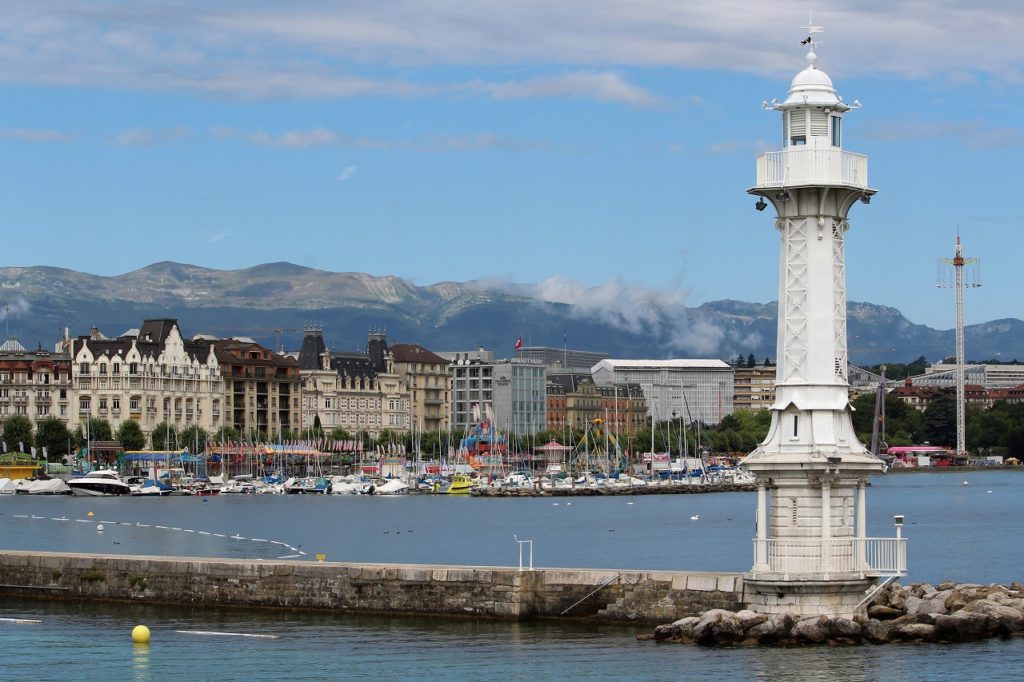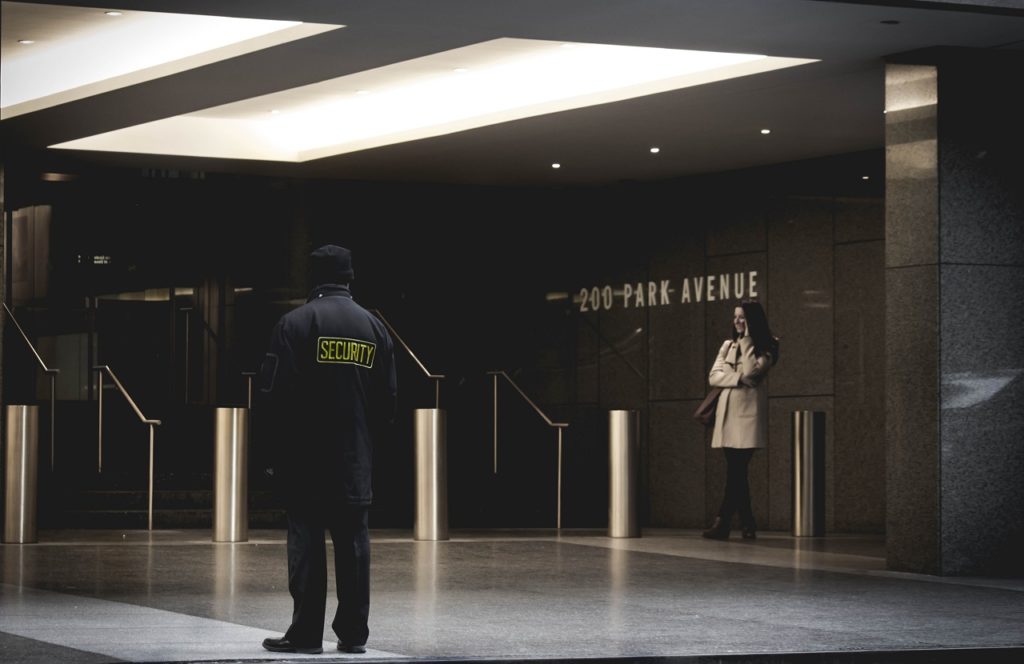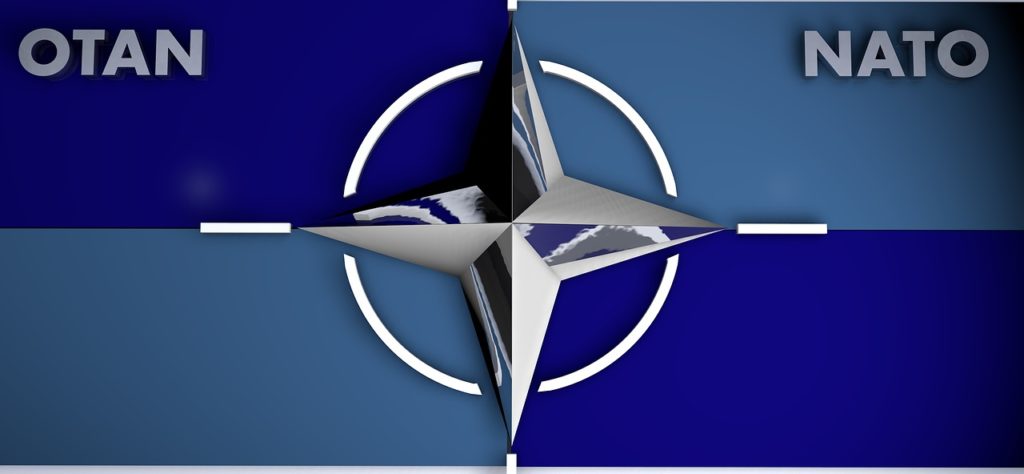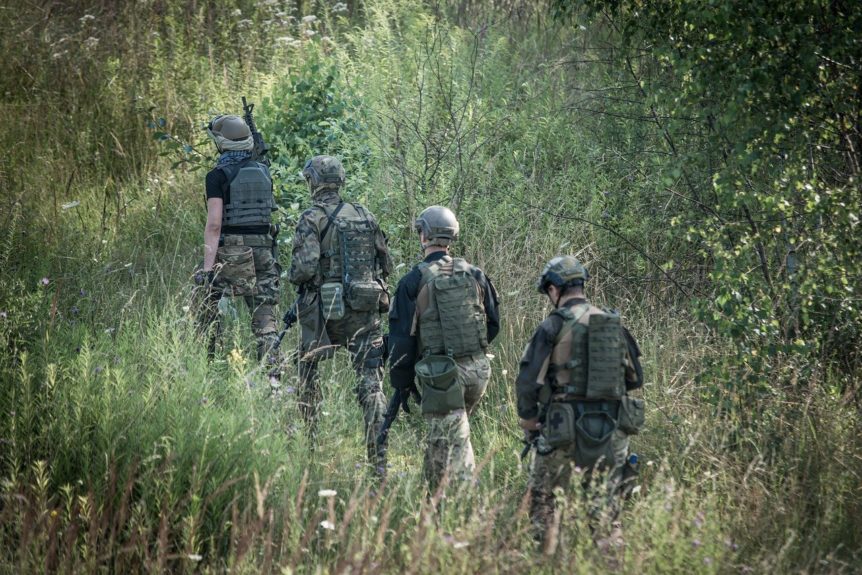Mercenaries are no strangers to the business of war. This line of work has been around for centuries and is even considered the second oldest profession in the world. Some of the world’s most feared armed forces in the historical era were made up of freelance warriors.
Remember the famous Flying Tigers? These were the three-squadron units of American volunteer fighter pilots who collaborated with the Chinese to fight the Japanese in the Second World War. President Franklin D. Roosevelt allowed for the recruitment of fighter pilots from the US Army Air Force while remaining neutral in the conflict between the two countries.
It was certainly a high-risk job, but the monthly remuneration was double to triple what the pilots’ salaries were at the time. This was in addition to the fat bonuses they received for every Japanese aircraft they successfully shot down.
For many people, the profession remains somewhat of a mystery. What are mercenaries? Are mercenaries legal? Is there a difference between mercenaries and private military companies? This article will explore the answers to these and many other questions in depth.
What Are Mercenaries – Mercenary Meaning
Before getting into whether or not mercenaries are legal, it’s important first to understand who they are and define mercenary roles in conflicts.
The standard mercenary definition put simply, is a professional soldier who is hired by a state or nation to fight their wars for them. These “guns-for-hire,” so to speak, are not driven by the conventions of patriotism, nor are they controlled by the mores of an army. Instead, they are fueled by personal gain. They are essentially freelance soldiers who fight a war between states purely for money.
You’re now probably wondering: Are private military contractors mercenaries? With a global market that spans over $100 billion, the line between private military contractors (PMCs) and mercenaries can get blurry, but the two are entirely different. One is legal, and the other is not (depending on the context).
Difference Between Mercenaries and Private Military Companies
PMCs work for private military companies. Both PMCs and mercenaries work for money. However, the difference between the two lies in whom they work for and how they operate.
Mercenaries are essentially individual soldiers who can be hired by whoever pays them. PMCs, on the other hand, are recruited into an organization (the private military company) that serves as the intermediary between the professional soldiers they employ and the governments that seek their services. A large number of the PMCs who work for private security companies are ex-army soldiers or ex-members of a national police force, who have the necessary training and experience required for their line of work.

Unlike mercenaries whose resources are limited to light arms, PMCs have access to more complex and heavier military artillery like planes, helicopters, tanks, and sophisticated firearms. Another glaring difference between the two is the scope of work they can undertake.
Mercenaries are typically deployed to frontline combat. PMCs working for security companies, on the other hand, can work in several other areas, including gathering intelligence, providing logistics and transportation services for high-value assets, and even providing executive protection for targeted high-risk individuals.
Both mercenaries and PMCs wear a mix of special operation uniforms and casual civilian attire depending on the context of their operations. Mercenaries, however, earn more than their PMC counterparts since they get to negotiate the terms of their contracts directly and don’t have to share their earnings with any institution.
Anyone who has the set of skills required to become a PMC can also be a mercenary.
Are Mercenaries Legal – the Geneva Convention
The 1989 International Convention made the recruitment, use, training, and financing of mercenaries illegal. It also forbids the recruitment of people to fight in an armed conflict or for private gain.
According to the convention, any individual who is not a member of any armed force that is a party to the conflict is considered a mercenary. It further stipulates that all states should consider mercenary activity an offense for which the individual in question ought to be prosecuted or, at the very least, extradited.

However, the United Nations Mercenary Convention, which came into force in October 2001, was ratified by only 35 countries. These include Italy, Ukraine, Germany, Poland, and Saudi Arabia. Countries like the US, UK, and Russia that actively use PMCs did not ratify the convention.
So, as to whether mercenaries are legal or not? The answer to this is – it depends on the country in question. The use of PMCs and mercenaries is legal in countries that did not sign the UN treaty. Additionally, if a professional soldier is hired by a sovereign nation to fight for them, then they are legal to that country. But if they are captured by the opposing country’s government or any other country that’s a party to the UN Treaty, then they would be considered illegal.
The Legality of Private Military Contractors
Many countries prefer to enlist the services of PMCs for several reasons. For one, a country may lack the requisite human resources in its armed forces, so recruiting PMCs is the only way they can bump-up their numbers.
It is also a cost-efficient way for governments to get top-notch highly-skilled security operatives on an as-needed basis without having to maintain them on their full-time payroll. It’s a great way for governments to sidestep responsibility for any acts committed by PMCs, as well as the control and regulation of democratic bodies.
While PMCs are legally bound by the laws of the country where their respective companies are headquartered, the legality of their actions comes into question when they operate in countries outside their parent states. In 2003, for instance, the Bush administration amped-up the use of PMCs during the Iraq invasion. It also recruited several of them in the Afghanistan war. These PMCs were not bound by Iraqi or Afghan laws, nor were they bound by US laws since their operations fell outside the jurisdiction.
Conventional soldiers can be court-martialed if they violate any of their respective military laws. This, however, doesn’t apply to PMCs. One way to hold them accountable would be for aggrieved parties to file civil lawsuits against them.
International Humanitarian Law
There is a consensus that leans towards private military security companies and their employees as civilians (non-combatants) under the existing International Humanitarian Law (IHL). This law is what ultimately differentiates civilians from combatants and serves as a regulatory framework to determine what an individuals’ behavior should be when they are in a war zone.
Civilians in a war zone are supposed to be protected from direct attacks against insurgents provided that they do not actively participate in the conflict. However, combatants are required to abide by directives, such as:
- Adhering to the laws of war
- Openly carrying weapons
- Ensuring that they are easily recognizable through a uniform or any other appropriate signage
- Operating under a clear line of command
In addition to these, combatants are accorded “combatant privilege,” which means that if they are captured by the opposing forces, they are to be treated as prisoners of war as opposed to criminals. The distinction between combatants and civilians when it comes to PMCs, however, is not as clear-cut as you would expect.
For starters, they are considered civilians for the most part, but they hardly refrain from taking an active role in the conflict. However, in most cases, advocates representing these individuals usually alter the perception of the PMCs’ use of force to be in self-defense as opposed to using force in combat.
Role of Private Security Companies
It’s no secret that the US government relies heavily on PMCs for security. However, PMCs are generally not employed in frontline combat parse and can, therefore, not be considered mercenaries even though both work for money.
PMCs, however, enjoy a good reputation since they offer a wide variety of skill sets and are employed by reputable organizations. Aside from combat operations, they are employed in executive protection companies whose services come in handy for high net worth individuals.

Other roles of private security companies include:
- Providing security for oil exploration companies
- Protecting oil rigs
- Conducting counter-drug operations
- Fighting terrorism
- Engaging in armed conflicts to stop genocides and civilian slaughter
- Providing intelligence and operational support in military operations
- Combating rebel forces
- Developing security plans for private organizations
- Training security personnel and national police forces
- Protecting foreign political dignitaries
The educational backgrounds of private military contractors vary widely, and their respective requirements depend on the type of work they are contracted to do. While not all private contractors have a military background, those that do have a competitive advantage over the rest when it comes to all matters security and defense.
For instance, when hiring an industrial security officer from a private security company, they should have at least three years’ experience working for the Department of Defense or the US Government, and know how to work with systems like e-QIP and JPAS.
The Rise in Popularity of Private Military Security Companies
The last three decades have seen a surge in the use of private military security firms. This has contributed to the expansion of this multi-billion dollar industry. One of the reasons for this can be traced back to the end of the Cold War.
The Cold War
In the decades following the end of the Second World War, most nations went through a period of hyper-militarization after the establishment of the Warsaw Pact and NATO – which the US is a part of. This period was known as the Cold War.

It allowed several countries to expand and fortify their military power and also brought with it a heavy financial burden which most countries were struggling to carry. When the Cold War drew to a close, several of these countries decided to offload this burden by downsizing their military forces.
The US, in particular, reduced the number of its army personnel by 35 percent, effectively cutting costs by a whopping $100 billion. This move suddenly meant that several individuals who had previously been employed by their respective country’s military apparatus were now jobless searching for new employment opportunities to sustain themselves and their families. This led to the formation of private military companies that drew from the pool of elite, well-trained ex-soldiers and grew to become the multi-billion dollar industry it is today.
The Mogadishu Syndrome
The other reason for the rise and subsequent growth of private military security companies is the so-called Mogadishu Syndrome. In 1993, the United States led a mission dubbed “Operation Restore Hope.” This was as a result of a UN Security Council Resolution that was adopted to authorize the use of all means necessary to establish a safe and secure environment for humanitarian relief operations in Somalia.
But, the mission was abandoned after public outrage when a firefight erupted in the war-torn country, which led to the death of 18 American soldiers and more than 300 Somali locals. Many Americans called into question the necessity of getting involved in humanitarian conflicts, particularly where American interests were not directly at stake.
This gave rise to the concept of the “Mogadishu Syndrome,” which refers to the unwillingness of governments to intervene in conflicts for humanitarian reasons other than for their national interest. So the best way for governments to circumvent this is through the use of PMCs rather than have their actual army troops on-site. This has contributed to making the private military security industry the thriving success it is today.
It’s All About Perspective
More often than not, the word “mercenary” is considered pejorative, especially by those in the industry. However, whether you want to call these ex-army individuals hired directly or through a company, “mercenaries” or “private military contractors,” they all exist to fight wars for money.
PMCs, however, do more than combat-related operations. They use their specialized skills to provide executive protection for high-profile individuals, residential, commercial premises, events, and even maritime security. They are an efficient way of meeting the diverse security demands of states, corporations, and individuals.
So are mercenaries legal? Yes – to the nation that hired them.
If you have more legal questions, you can also chat now with a Laws101.com attorney, where you’ll be instantly connected to a lawyer who can give you legal guidance on your specific case or question.
